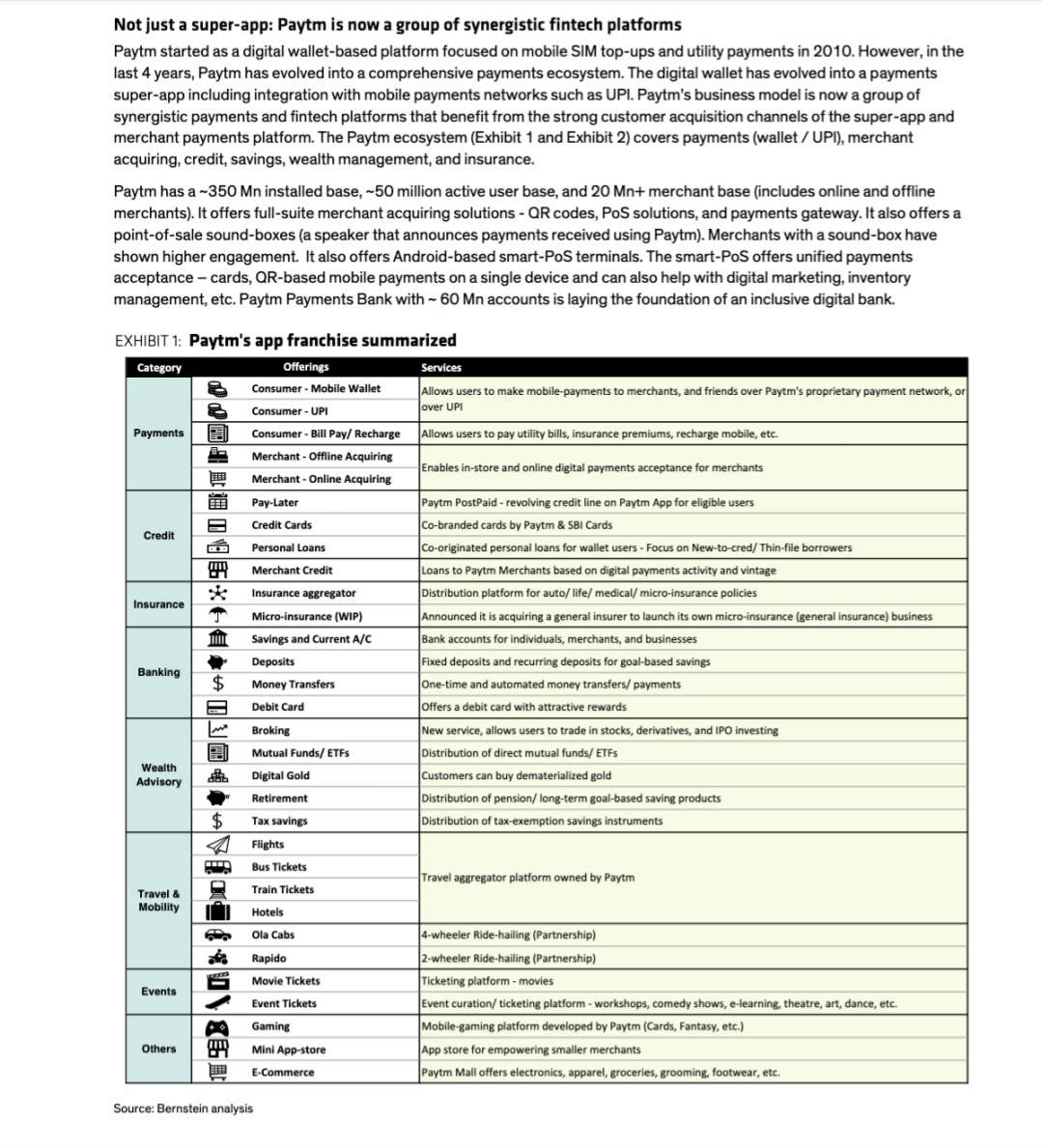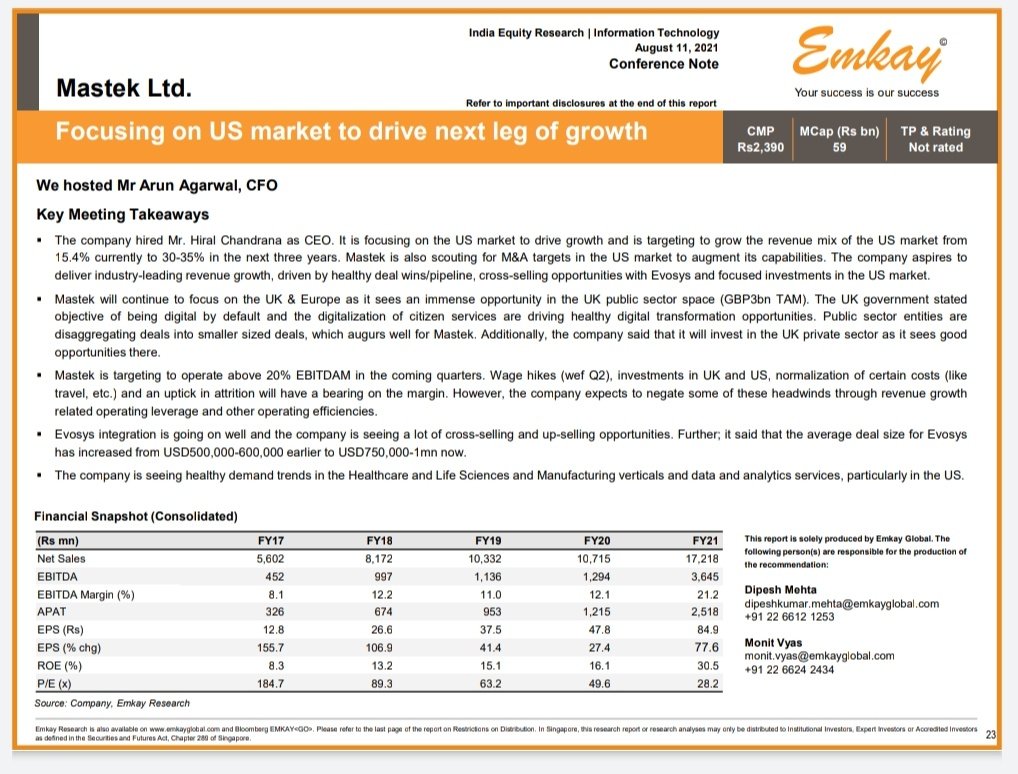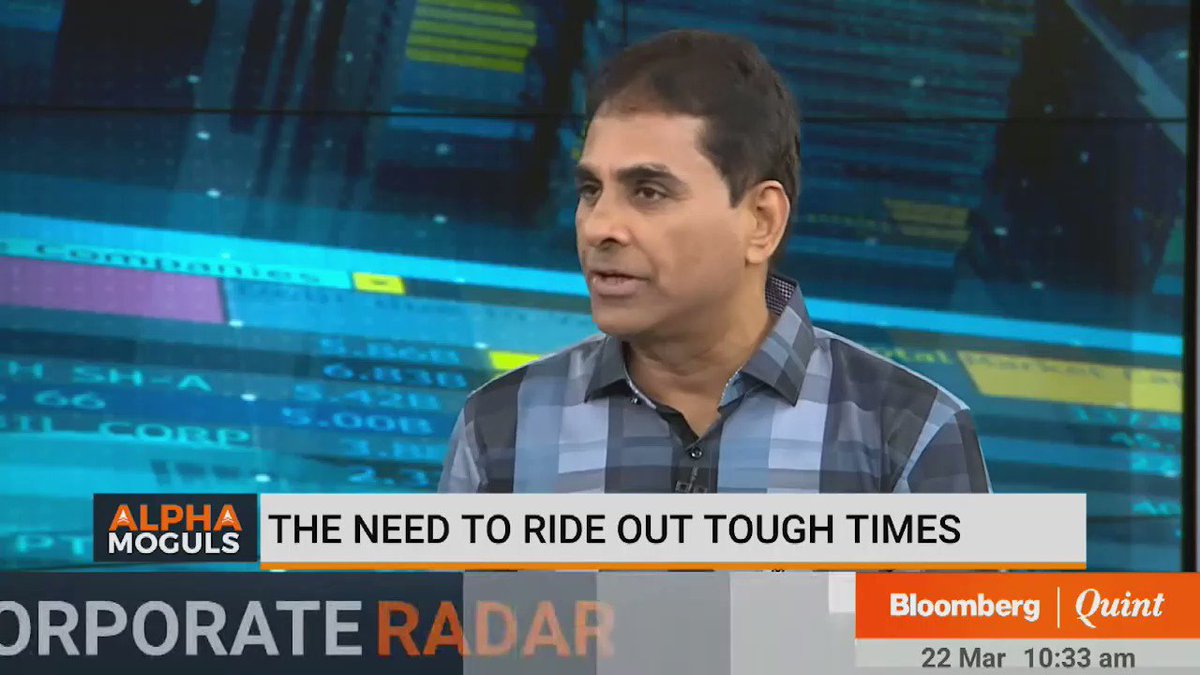𝐃𝐨 𝐘𝐨𝐮 𝐊𝐧𝐨𝐰 𝐖𝐡𝐚𝐭 𝐈𝐧𝐝𝐢𝐚'𝐬 𝐁𝐢𝐠𝐠𝐞𝐬𝐭 𝐔𝐩𝐜𝐨𝐦𝐢𝐧𝐠 𝐈𝐏𝐎 𝐂𝐨𝐦𝐩𝐚𝐧𝐲 𝐂𝐨𝐦𝐩𝐫𝐢𝐬𝐞𝐬 𝐎𝐟 ?
@vijayshekhar #𝐏𝐀𝐘𝐓𝐌

More from Raghav Chaudhary
#RadicoKhaitan - Concall Snippet !
ROCE GENERATION of 20-25% In Coming Qtrs !
(Weekend Is Coming😏) https://t.co/vQw9N2UFgZ

ROCE GENERATION of 20-25% In Coming Qtrs !
(Weekend Is Coming😏) https://t.co/vQw9N2UFgZ

#TataCoffee - Concall Snippet !
— Raghav Chaudhary (@MrRChaudhary) July 29, 2021
Expects Margin Expansion in India Coffee.
(Only For Educational Purpose) pic.twitter.com/Dcd6uW7l0R
You May Also Like
"I lied about my basic beliefs in order to keep a prestigious job. Now that it will be zero-cost to me, I have a few things to say."
We know that elite institutions like the one Flier was in (partial) charge of rely on irrelevant status markers like private school education, whiteness, legacy, and ability to charm an old white guy at an interview.
Harvard's discriminatory policies are becoming increasingly well known, across the political spectrum (see, e.g., the recent lawsuit on discrimination against East Asian applications.)
It's refreshing to hear a senior administrator admits to personally opposing policies that attempt to remedy these basic flaws. These are flaws that harm his institution's ability to do cutting-edge research and to serve the public.
Harvard is being eclipsed by institutions that have different ideas about how to run a 21st Century institution. Stanford, for one; the UC system; the "public Ivys".
As a dean of a major academic institution, I could not have said this. But I will now. Requiring such statements in applications for appointments and promotions is an affront to academic freedom, and diminishes the true value of diversity, equity of inclusion by trivializing it. https://t.co/NfcI5VLODi
— Jeffrey Flier (@jflier) November 10, 2018
We know that elite institutions like the one Flier was in (partial) charge of rely on irrelevant status markers like private school education, whiteness, legacy, and ability to charm an old white guy at an interview.
Harvard's discriminatory policies are becoming increasingly well known, across the political spectrum (see, e.g., the recent lawsuit on discrimination against East Asian applications.)
It's refreshing to hear a senior administrator admits to personally opposing policies that attempt to remedy these basic flaws. These are flaws that harm his institution's ability to do cutting-edge research and to serve the public.
Harvard is being eclipsed by institutions that have different ideas about how to run a 21st Century institution. Stanford, for one; the UC system; the "public Ivys".



















